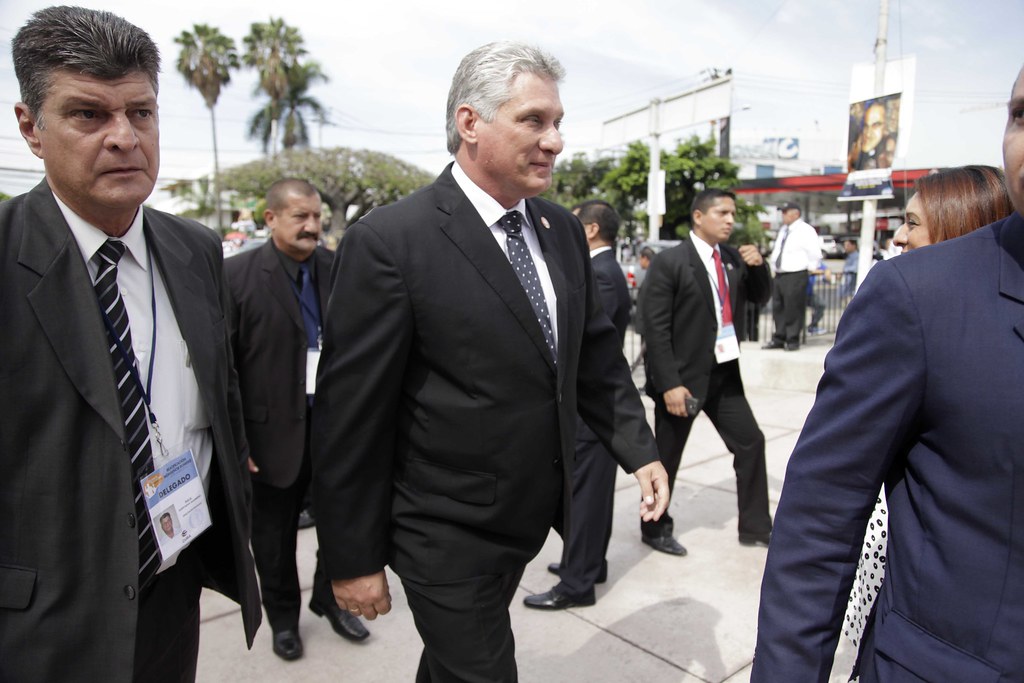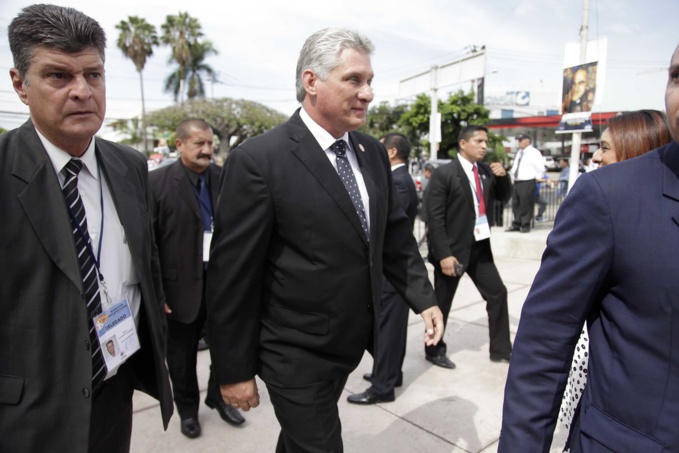The Cuban parliament has elected Miguel Díaz-Canel, Chairman of the State Council, as President of the country. The post of vice president was received by Salvador Valdés, who served as Deputy Chairman of the State Council.
575 out of 605 deputies of the National Assembly of People's Power participated in the voting during an extraordinary meeting. In addition to Díaz-Canel, 17 people claimed the post of President of Cuba, but observers predicted his victory on the eve of the vote.
The election took place for the first time in 40 years, and this was preceded by a change in the country's constitution. It was the new edition of the document that returned the post of President and Prime Minister of the republic. In fact, Cuba ceased to be a presidential republic after the 1959 revolution, when Chairman of the Council of State of Cuba was appointed the highest state position. However, the presidency was finally abolished only in 1976. The post of Head of the State Council was the highest until the approval in 2019 of the new constitution of Cuba.
According to the results of the constitutional referendum, the period the head of state was in power was also limited to two periods of five years, and an age threshold was set for possible candidates: now a person over 60 cannot apply for this post. At the same time, President is elected by the National Assembly of People’s Power (unicameral parliament) of Cuba. President of the republic actually takes over part of the powers of the chairman of the State Council.
The referendum on the new constitution raised the main issues. The Cuban opposition criticized it, and accused the country's government of using a media monopoly to campaign in support of the document. In addition, about 30 members of the opposition Cuban Patriotic Union (UNPACU), urging people not to vote for the new constitution, were detained a week before the referendum.
The Cuban referendum was also negatively received in the USA. The Americans called it "the next trick of the regime to cover up repression." The Senate also expressed the opinion that in this way the Cuban authorities are trying to stay at the helm. At the same time, the State Department emphasized that the United States does not recognize the constitutional referendum in Cuba.
source: miamiherald.com, reuters.com
575 out of 605 deputies of the National Assembly of People's Power participated in the voting during an extraordinary meeting. In addition to Díaz-Canel, 17 people claimed the post of President of Cuba, but observers predicted his victory on the eve of the vote.
The election took place for the first time in 40 years, and this was preceded by a change in the country's constitution. It was the new edition of the document that returned the post of President and Prime Minister of the republic. In fact, Cuba ceased to be a presidential republic after the 1959 revolution, when Chairman of the Council of State of Cuba was appointed the highest state position. However, the presidency was finally abolished only in 1976. The post of Head of the State Council was the highest until the approval in 2019 of the new constitution of Cuba.
According to the results of the constitutional referendum, the period the head of state was in power was also limited to two periods of five years, and an age threshold was set for possible candidates: now a person over 60 cannot apply for this post. At the same time, President is elected by the National Assembly of People’s Power (unicameral parliament) of Cuba. President of the republic actually takes over part of the powers of the chairman of the State Council.
The referendum on the new constitution raised the main issues. The Cuban opposition criticized it, and accused the country's government of using a media monopoly to campaign in support of the document. In addition, about 30 members of the opposition Cuban Patriotic Union (UNPACU), urging people not to vote for the new constitution, were detained a week before the referendum.
The Cuban referendum was also negatively received in the USA. The Americans called it "the next trick of the regime to cover up repression." The Senate also expressed the opinion that in this way the Cuban authorities are trying to stay at the helm. At the same time, the State Department emphasized that the United States does not recognize the constitutional referendum in Cuba.
source: miamiherald.com, reuters.com



















